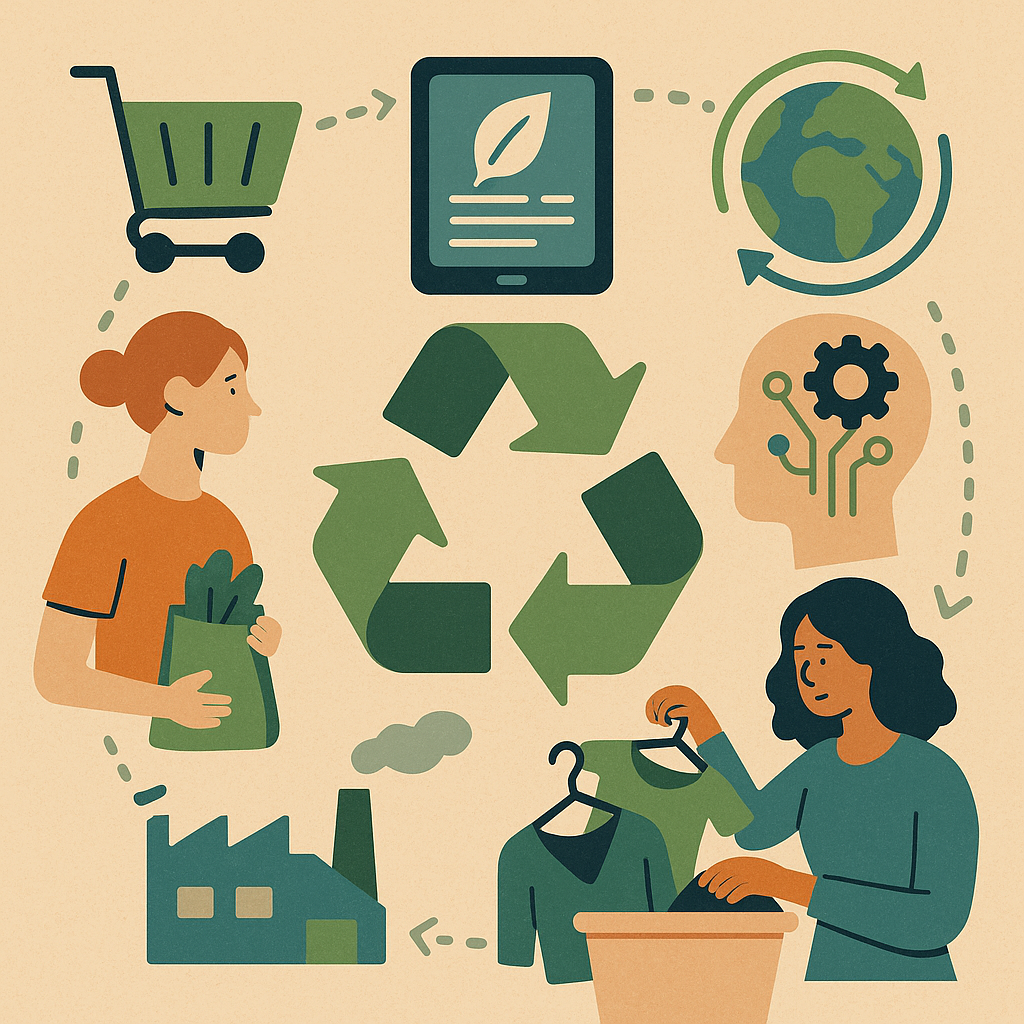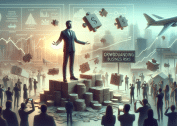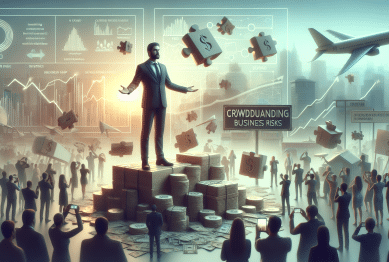The circular economy is rapidly transforming global industries, offering innovative solutions to environmental challenges and creating new economic opportunities. In 2025, several emerging trends are shaping this sustainable approach to production and consumption.

Key Trends in the Circular Economy for 2025
1. Expansion of Reuse Models
Traditional recycling methods have proven insufficient, with less than 9% of global plastic waste being successfully recycled. In contrast, reuse models are gaining traction, capable of reducing packaging production by up to 90% and emissions by 80% compared to single-use alternatives. Initiatives like PR3 are developing global reuse standards, and companies such as Bold Reuse and Re:Dish are implementing large-scale reuse programs in the U.S. and Europe .Reuters
2. Integration of Artificial Intelligence
Artificial intelligence (AI) is playing a pivotal role in advancing the circular economy. AI technologies are optimizing resource management, enhancing recycling processes, and facilitating the development of second-hand markets. For instance, smart robots are efficiently dismantling products to isolate reusable materials, and AI-driven platforms are streamlining reverse logistics .LinkedIn
3. Adoption of Digital Product Passports
Digital Product Passports (DPPs) are emerging as essential tools for tracking the lifecycle of products. These digital records provide detailed information about a product’s materials, manufacturing processes, and recyclability, enabling better decision-making for consumers and businesses. The European Union is promoting the use of DPPs to enhance transparency and support circular practices .protokol.com+1GlobeNewswire+1Center for Sustainbability & Excellence
4. Circular Innovations in the Fashion Industry
The fashion industry is witnessing significant advancements in circular practices. Textile-to-textile recycling is becoming more feasible, with companies like Reju and Syre investing in recycling facilities. Collaborative initiatives such as the Fiber Club are also working towards scaling next-generation materials, aiming to reduce dependency on virgin resources and mitigate waste .Vogue Business
5. Policy and Regulatory Developments
Governments are implementing policies to accelerate the transition to a circular economy. The European Union’s Circular Economy Action Plan includes measures like the Ecodesign for Sustainable Products Regulation (ESPR) and the Corporate Sustainability Reporting Directive (CSRD), which set standards for product design and mandate sustainability reporting for businesses .GlobeNewswirecircle-economy.com
Conclusion
The circular economy in 2025 is characterized by innovative reuse models, technological integration, and supportive policy frameworks. These developments are not only addressing environmental concerns but also opening new avenues for economic growth and sustainability. As industries and consumers embrace these trends, the shift towards a more circular and resilient economy becomes increasingly attainable.
References:
- Reuters. (2025, May 1). To end the plastic crisis, we need new business models based on reuse. Retrieved from https://www.reuters.com/sustainability/society-equity/end-plastic-crisis-we-need-new-business-models-based-reuse-2025-05-01/Reuters
- LinkedIn. (2025). 2025: The circular economy is inevitable! Retrieved from https://www.linkedin.com/pulse/2025-circular-economy-inevitable-origami-marketplace-xmxpeLinkedIn
- European Commission. (2025). The EU’s Road to a Circular Economy by 2025: Key Steps and Challenges. Retrieved from https://cse-net.org/eu-road-to-a-circular-economy-by-2025-key-steps-and-challenges/Center for Sustainbability & Excellence
- Vogue Business. (2025). Is fashion recycling finally heading for a breakthrough? Retrieved from https://www.voguebusiness.com/story/sustainability/is-fashion-recycling-finally-heading-for-a-breakthroughVogue Business
- Circle Economy. (2025). Three circular economy regulations businesses can’t ignore in 2025. Retrieved from https://www.circle-economy.com/blog/three-circular-economy-regulations-businesses-cant-ignore-in-2025circle-economy.com









